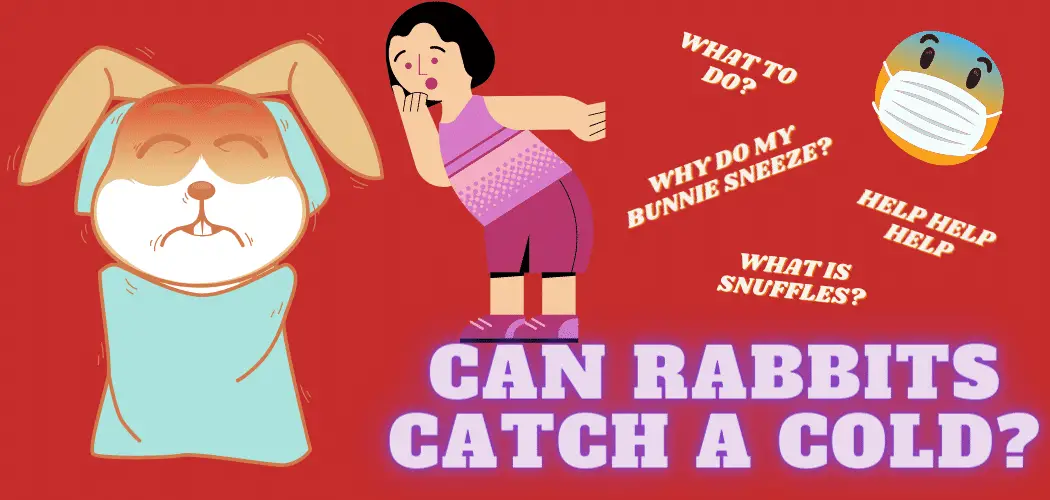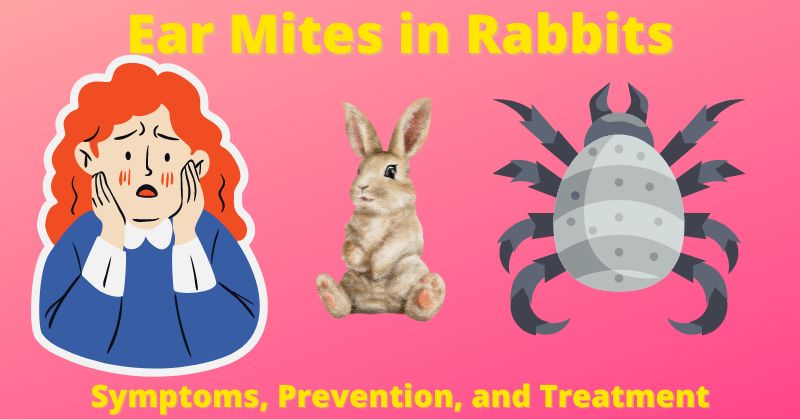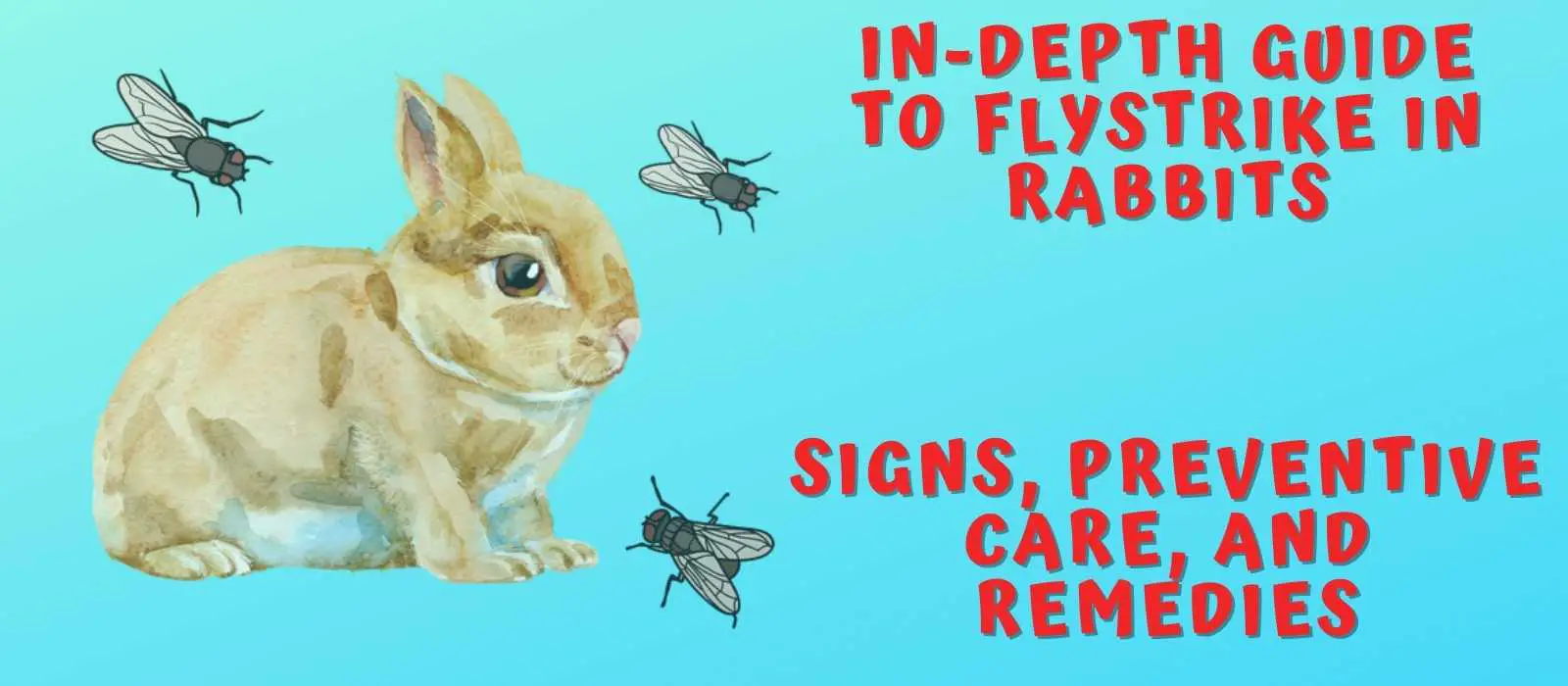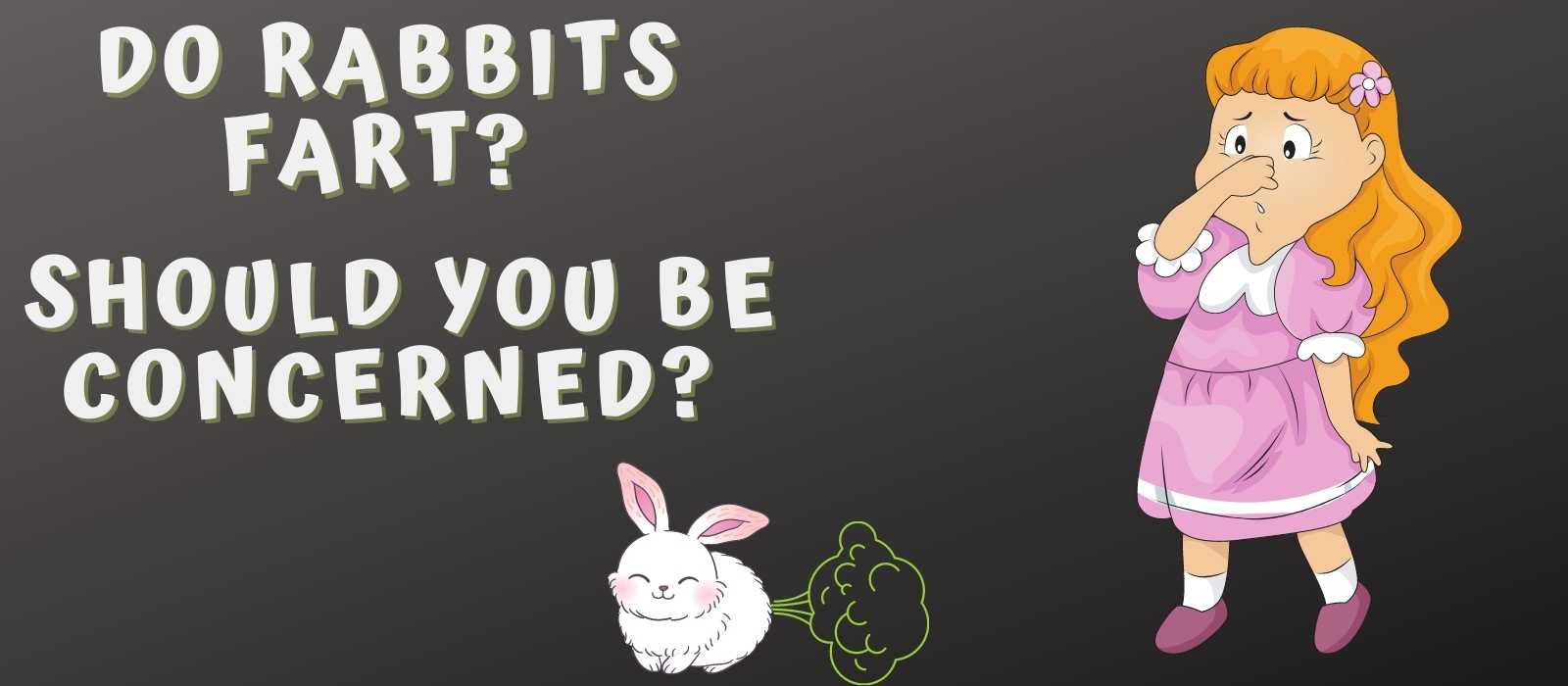Quick Answer: Can Rabbits Catch a Cold?
Rabbits are known to be more susceptible than humans and can catch a bacterial infection that causes similar symptoms as those experienced during an illness: runny nose, eyes (including discharge), coughing or sneezing.
Long description of this topic below
Intro: Can Rabbits Catch a Cold?
Can rabbits catch a cold? The answer is yes, but they do not get the same kind of cold that humans get. Rabbits can only contract rhinitis (a type of upper respiratory infection), and this usually comes from direct contact with another rabbit who has it.
Rabbit cold is called Snuffles, and it is caused by a virus.
What is Snuffles (Pasteurellosis)?
Snuffles is an upper respiratory infection, and it can be a dangerous condition. It is caused by the herpes virus that causes herpetic stomatitis (mouth ulcers) in rabbits.
The name “snuffle” comes from a sound that the rabbit makes when they breathe because of congestion.
Can humans get snuffles?
The answer is no because it is caused by a virus and not bacteria. Humans can catch bacterial infections like pneumonia or bronchitis that come from direct contact with another human who has the infection.
Snuffles come from stress levels in the rabbit’s environment as well as exposure to other rabbits.
What about other pets like Cats and Dogs?
Dogs and other animals can also catch this type of infection, but it is not the same for them. Dogs get kennel cough while cats often get upper respiratory infections.
How a human catches their cold will vary depending on what they’re exposed to as well as how healthy they are in general.
What are the symptoms of rabbit snuffles (Pasteurellosis)?
Matted fur on paws and face

You may not be able to tell if your rabbit has a cold, but it can sometimes give you clues. When rabbits have snot on their face or paws and they wash them off with watery eyes or runny nose- these are signs that the disease is present!
They will also wipe away any evidence by rubbing their hands together in an attempt to remove all traces of mucus from being seen.
Nasal Discharge
Nasal discharge from the rabbit can be clear or yellowish-green. It is usually thick and sticky, but this varies depending on how severe the infection is.
The discharge can also be blood-tinged, which is indicative of a more serious condition.
Watery Eye and Runny Nose
A rabbit with snuffles will have watery eyes and a runny nose. It is possible to see the discharge from the eye as well, but this can also be indicative of other illnesses.
Sneezing
A rabbit that has snuffles will sneeze a lot, and the sound can be quite loud.
Coughing
A rabbit that has snuffles can also have a cough. This may be dry or wet, and the severity of it can vary from a mild cough to something more severe.
Drooling
A rabbit that has snuffles will also drool. This is because of congestion in the nose.
Head Tilt
A rabbit that has snuffles may also have a head tilt, which is the result of ear infections. Wry neck or head tilt has been associated with stroke cancer and in rabbits ear infections can cause this.
This unbalances the rabbit, causing him to always tilt his head 90 degrees away from where it should be pointing.
Sometimes bacteria that causes snuffles will spread through a rabbit’s ears when they are infected by an ear infection – if your bunny starts acting like he is spinning around even though there aren’t any things for him to spin on then you need medical treatment right now!
Loss of Energy
A rabbit that has snuffles will also have decreased energy levels. This is because they are not getting enough oxygen.
Loss of Appetite
A rabbit that has snuffles will also have a loss of appetite. This is because they are not eating or drinking well due to congestion in their nose and mouth.
Difficulty Breathing
A rabbit that has snuffles will have difficulty breathing because the nasal passages are congested.
Rabbits are unable to breathe through their mouth, which means a bunged-up nose can make breathing extremely difficult.
Other causes of sneezing in rabbits
- A rabbit’s nose may be irritated by a foreign object, like plastic wrap.
- They could have allergies to pollen or dust mites that are causing their nasal passages to swell up and cause congestion. This can also manifest as watery eyes and/or runny noses.
Why do Rabbits get snuffles (Pasteurellosis)?
The truth is that no one really knows why rabbits get snuffles. Some theories are:
- The cause of the virus could be genetic, and it just happens in some rabbit populations more than others.
- It may also have to do with how they eat their food or what type of foods they consume.
- Stress could also be a factor. Sometimes an otherwise healthy rabbit can get snuffles when they are stressed out or exposed to an unfamiliar object in their environment, such as a new type of food that has never been given before.
- Some vets believe that stress is the culprit because there’s no evidence linking it to any other cause and sometimes the disease will come back because the rabbit is no longer stressed out.
- There are also some who believe that it may be a genetic condition as well, which would explain why in some cases stress does not seem to trigger an attack of snuffles because they were already born with the virus or carry it without any symptoms present in their system.
If your bunny has snuffles, you should consult a veterinarian or other rabbit expert for treatment options and instructions on how to care for your pet.
What do I do if my Rabbit gets snuffles (Pasteurellosis)?
If your rabbit exhibits any symptoms of snuffles like a runny nose, it is best to take them to the vet for diagnosis as rabbit snuffles can be a very serious illness. There are a few things you can do in the meantime that will help make sure they stay healthy:
- Keep their living area clean and free of dust so there’s less stress on their system from exposure to new allergens or irritants.
- Provide them with fresh water and plenty of hay to eat so they can get the nutrients that they need while their immune system is compromised.
- Feeding your rabbit a healthy, balanced diet will help provide more energy for when they are feeling better again and healing from snuffles has taken effect.
- You can ask your vet or veterinarian about any dietary restrictions that need to be taken if they have snuffles and are recovering from it – this will help prevent the problem from returning.
- If there are no medical interventions needed, sometimes infected rabbits with snuffles will get better on their own with a little bit of rest and relaxation.
Can infected rabbits recover from snuffles?
Yes, they can, but it is important to treat a rabbit with snuffles as quickly as possible because they are more likely to get an infection and have a harder time fighting it off.
Snuffles Treatment
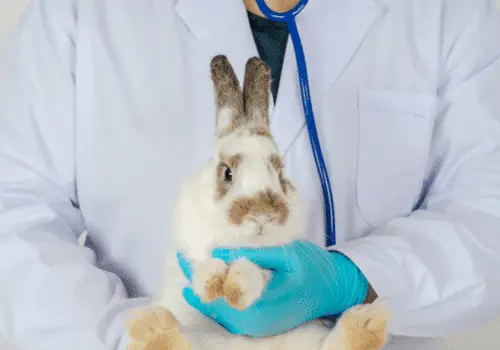
- Some veterinarians will recommend giving your rabbit medicine to treat a cold or allergies.
- There are many medicines available that can help with the symptoms of snuffles, but some may be stronger than others and should only be administered if prescribed by a vet. The most common are antibiotics which must be taken for at least seven days before the rabbit will show any sign of improvement.
You can also ask your vet about giving them a topical ointment for their nose to help with the irritation as well as an oral medication if they have been diagnosed with bacterial or viral snuffles. These meds are safe and easy to administer at home so you don’t need to take your rabbit to the vet’s office every day.
If you have a special needs pet, such as one with respiratory issues like asthma or COPD, it is best not to give them any pills because they may worsen their condition. In this case, veterinarians will usually recommend that you administer medicine through inhalers and nebulizers instead.
Your vet will also prescribe any medications that are needed to help with the symptoms of snuffles, but it is a good idea for you and your pet to get in some extra rest and relaxation during this time as well.
If your rabbit has been diagnosed with bacterial or viral snuffles then they may need an oral medication. These meds are easy to administer at home so you don’t have to take your rabbit in every day.
Hospitalization for Snuffles
Some rabbits may need to be hospitalized if they are in severe respiratory distress and have a hard time breathing. In this situation, your vet will typically recommend that you put their rabbit on oxygen therapy so it can recover from the infection more quickly without stressing out about being confined inside of its cage all day.
If your pet rabbit has been diagnosed with bacterial or viral snuffles, it is important to call your vet right away so they can prescribe an oral medication.
How to prevent rabbits from getting snuffles?
Rabbits are especially susceptible to contracting snuffles if they have a weakened immune system or live in close quarters with many other rabbits.
You can help prevent them from getting sick by giving them plenty of freshwaters, hay, and healthy food while their immune system is compromised so that they don’t get too dehydrated on top of everything else.
You can also help to strengthen their immune system by providing them with a healthy, balanced diet that will provide more energy for when they are feeling better.
Keeping your bunny happy at a comfortable temperature, no more than 75 degrees.
More importantly, rabbits are very social animals and they get lonely and depressed if they are left alone all day. Like humans, depressed rabbits can be much more likely to become sick; being with a happy bunny is the best way for you to prevent this!
Finally, you should consider keeping your rabbit’s living area as clean and dust-free as possible to avoid allergens or irritants.
Conclusion
If your rabbit has been diagnosed with bacterial or viral snuffles, it is important to call your vet right away so they can prescribe an oral medication.
Otherwise, you should take the time to care for your pet by giving them plenty of freshwaters and healthy food while their immune system is compromised in order to keep them from getting too dehydrated and to keep them healthy.
It is also important that you make sure your rabbit’s living area is as clean as possible in order to avoid allergens or irritants which may lead to their worsening condition. Rabbits are very social animals, so it is best not to leave them alone all day! Lastly, rabbits should never be given any pills because these may worsen their condition.
This blog post has covered the basics of caring for your rabbit if they have been diagnosed with bacterial or viral snuffles, but if you’re still unsure about what to do then don’t hesitate to consult a veterinarian! They will likely recommend that you administer any medications through inhalers and nebulizers instead of by mouth.
This blog post has covered the basics but if you have more questions then don’t hesitate to contact one of our veterinarians!

